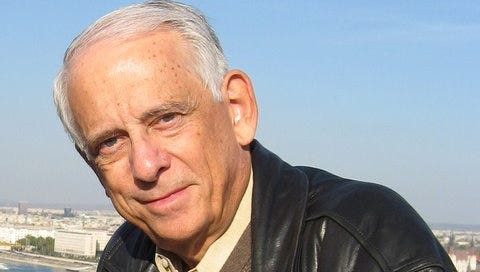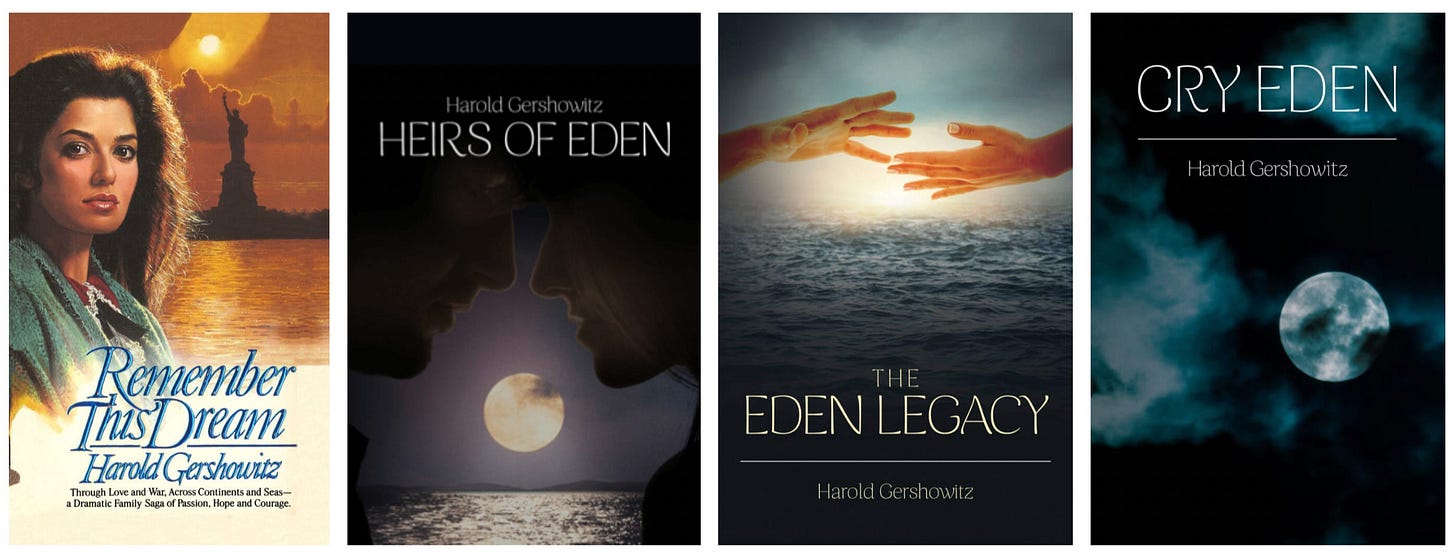Ukraine Settled For US, British and Russian “Assurances” in the Absence of “Guarantees”
War was sure to follow.
I’m reminded of an old truism. An oral contract is worth the paper on which it is printed. That is, when push gets to shove, weak agreements are worthless. It is now tragically clear that US, British and Russian mere assurances thirty-five years ago (rather than guarantees) that Ukrainian territorial integrity would be protected in return for Ukraine turning over its considerable nuclear arsenal to Russia for decommissioning offered little protection to Ukraine. Because we and Great Britain, along with Russia “assured” rather than “guaranteed” Kyiv that an attack against Ukraine wouldn’t be tolerated, Ukraine has, for the last three years, been fighting for its life.
What a difference a word makes. The difference between those 1994 “assurances” as compared to “guarantees” is well over 400,000 Ukrainian war casualties and an estimated one million Russian war casualties and counting. Given the immense pressure the United States put on Ukraine thirty-five years ago to give up the nuclear deterrence it possessed against an attack by Russia, we have a strong moral obligation to stand with Ukraine today.
But memories dim over time, and Ukraine is paying the price for the perfidy of those nations it had foolishly trusted. And yes, that includes the United States most of all, because, most of all, we were who the Ukrainians most trusted.
To review a bit of what is now ancient history, when the old Soviet Union collapsed, newly independent Ukraine found itself with a substantial nuclear arsenal. The United States, Britain, and the new Russian Federation convinced the newly independent Ukrainian nation that they, collectively, would assure Ukraine’s territorial integrity in return for Ukraine turning over to Russia for decommissioning the nuclear arsenal it possessed.
What a difference a generation or two makes. What a colossal difference there is between a diplomatic “assurance” and a “guarantee.” Bill Clinton was the President of the United States when Ukraine signed the Budapest Memorandum of 1994. The now ill-fated memorandum was signed in Budapest on December 5, 1994, by Bill Clinton on behalf of the United States, John Major on behalf of Great Britain, Boris Yeltsin on behalf of the Russian Federation, and Ukrainian President Leonid Kravchuk.
It provided worthless security “assurances” to Ukraine instead of “guarantees” in exchange for the newly independent nation’s nuclear disarmament and accession to the Treaty on the Non-Proliferation of Nuclear Weapons. Vladimir Putin was, at that time, a relatively unknown civil servant of no particular importance.
Given what Ukraine gave up by agreeing to nuclear disarmament, relying on what have turned out to be questionable “assurances” by the United States and Great Britain, President Trump’s reference to the war between Ukraine and Russia as a schoolyard brawl is particularly disconcerting.
Hindsight is always 20/20, and the reluctance of the United States and Great Britain to guarantee Ukrainian independence in 1994 instead of simply “assuring” it at the time of the Soviet Union’s disintegration was a colossal misjudgment by President Clinton and Prime Minister Major. Russia was in no position to object, Putin was a relative nobody, and Russia would not have risked war with the West over Ukraine. The decision not to guarantee Ukraine’s sovereignty in 1994 turned out to be a sleeping time bomb, a disquieting and tempting invitation for mischief just waiting for someone like a newly biligerent Putin to come along and observe an apparent reluctance by the West to stand by Ukraine’s new status as a free and independent nation.
Simply stated, the United States and Great Britain were in a position to make such a guarantee, and Russia, in 1994, was in no position to object. Such an American and British guarantee would have been reasonable in return for Ukraine’s surrender of a very sizeable nuclear arsenal. Russia would have been in no real position to object to such a guarantee. The fecklessness of our position became a sleeping time bomb, which began ticking nearly three decades later, when an emboldened Vladimir Putin, rightly or wrongly, saw our “assurance” rather than a “guarantee” of Ukrainian independence as a wink and a nod to a future Russian invasion. History will judge both President Clinton and Prime Minister Major as having badly blundered by issuing a meaningless “assurance” instead of a decisive “guarantee.”
The mere assurance in such a circumstance in the absence of a guarantee was little more than an announcement that we had only a limited commitment to Ukraine’s independence. A future Vladimir Putin was sure to take notice. The weak choice of words telegraphed weak resolve.
Security Guarantees represent a commitment to use military force in case of a violation. For example, NATO's Article 5 states that an attack on one member is considered an attack on all.
Security Assurances, on the other hand, do not involve a commitment to use military force. Such assurances, in the absence of guarantees, generally focus on diplomatic and economic support.
Given that the United States and Great Britain were playing with very strong cards, and Russia, at the time, had pretty weak face cards in its hand, we erred badly by signaling a minimal commitment to Ukraine’s independence. We and Ukraine are paying for that fecklessness today.
Putin had few cards to play at the time of the Budapest accords, and Boris Yeltsin showed no particular interest in keeping Ukraine in the Russian orbit. We unintentionally set the stage for the deadly drama that is now unfolding. Our poor judgment then is, to a great extent, responsible for the carnage taking place in Ukraine now. The deadly war in Ukraine is a testament to American and British shortsightedness. Hundreds of thousands of Ukrainians have lost their lives or have been seriously disfigured. Russian losses have been astronomical. This was never an unavoidable war. American and British guarantees of Ukrainian independence would have given Russia clear notice to keep its hands off of Ukraine. We weren’t willing to do that, and Russia took notice. Indecision and an unwillingness to guarantee Ukrainian independence set the stage for the bloodletting that has followed.
Please share our weekly commentary with others.
Of Thee I Sing 1776. Subscribe here:
https://oftheeising1776.substack.com/subscribe
Recent podcasts have featured my commentary on Liz Cheney’s book, “Oath and Honor,” as well as my commentaries regarding:
U.S. Representative Jim Jordan,
Brian Kemp and Those Republicans of Georgia,
The Trump Indictments,
The Fox Corp Settlement,
The CNN Trump Town Hall,
The Hunter Biden plea deal,
The New American Cult of Personality,
and my interviews with William Bratton, Retired Chief of Police in New York City, Los Angeles, and Boston;
Rikki Klieman, Attorney, Network News Analyst, and best-selling author;
John Thoresen, Executive Director, Barbara Sinatra Children’s Center;
Katherine Gehl, co-author of The Politics Industry and founder of the Institute for Political Innovation;
Jazz artist Ann Hampton Callaway;
Outlander author Diana Gabaldon;
AI Data Scientist Lawrence Kite;
Ryan Clancy, Chief Strategist of No Labels;
Former Senator Barbara Boxer;
Former Senator Joe Lieberman;
and former Maryland Governor Larry Hogan.
Novels by Hal Gershowitz





It’s interesting that you place so much blame for the Ukrainian war on Clinton and Major, and yet the lion’s share should go to President Kravchuk and obviously, Putin.